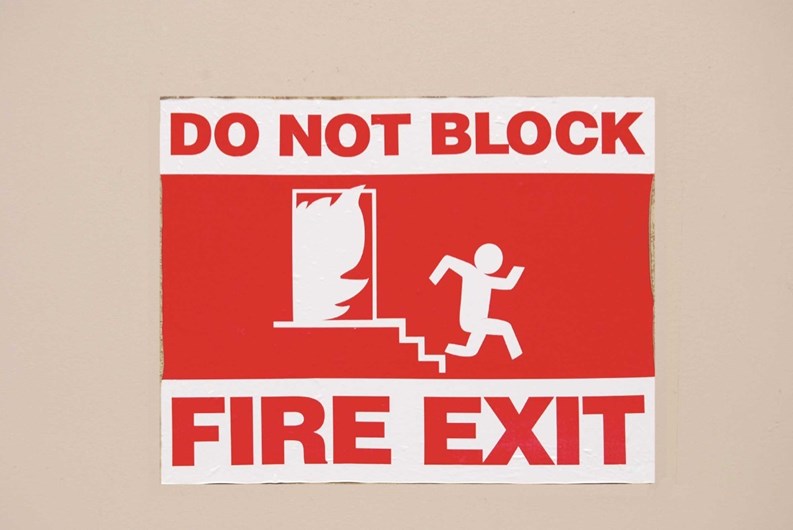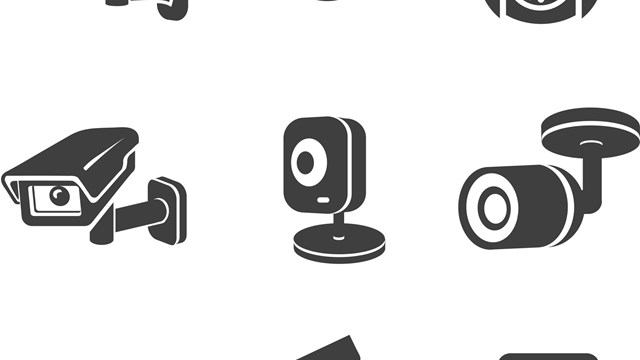Regardless of whether you live in a densely populated urban area or a more suburban community, security is something most homeowners are concerned about—even if they're not sure how to best secure their own property. Most people know how to avoid the garden-variety, shady-looking miscreant on the street—but how do you keep them out of your building or HOA? Here are what some experts have to say.
Look Out for Each Other.
“It's important to know the people in your building or HOA, the cars, and so forth,” according to Timothy A. Dimoff, founder and president of SACS Consulting & Investigative Services Inc. based in Akron, Ohio. “It also doesn't hurt to let each other know when you're going away for extended periods of time, and if you're going to have any of your family or anybody else checking on your condo, or if you're not expecting anyone to look in on it. You should say, 'I'm going to be gone for 10 days. There will be nobody coming to check,' or 'My daughter will be dropping by, and she drives a black Chevy Impala.' Let your neighbors know those factors when you're gone, and reciprocate—when they're gone, do the same for them.”
Similarly, Dimoff advises HOA residents to be aware that savvy criminals often watch a potential target home or building for some time prior to breaking in, taking note of the ebb and flow of traffic, residents' work schedules, and possible points of entry. “They make it their business to sit back and study people's patterns,” he says, “especially in condominiums where they know there may be older residents who have money, jewelry and other valuables in their apartments. So recognize who belongs in these condos and who doesn't.” Dimoff also stresses the importance of not letting mail and newspapers pile up while residents are away—always a clear sign that a home is possibly unattended.
Have Clear Access Rules.
Sounds simple: the best way to keep burglars and muggers and worse out of a building is to, well...keep them out of the building. “With regard to safety and security in residential co-op, condo, and condo buildings, access is a significant concern,” says Michael Basile, vice president of management for Manhattan-based AKAM Associates. That means, he says, not letting guests into the building prior to getting approval from residents, establishing their identity and purpose and duration of the visit before granting entry, not holding an access door open for unidentified individuals, and so forth.
Grill Smart.
Though summer seems a long way off as the cold and snow of winter settle in, it's never a bad time to consider the risk to life and property improperly-used cooking grills present. According to John Drengenberg, director of consumer safety for Underwriters Laboratories in Northbrook, Illinois, “People all over the country like to use their grills year-round, and if they're in a high-rise apartment or condo with a balcony, they like to grill on the balcony. We talk to fire officials a lot, and balcony grilling is a common source of fires and other accidents. Sometimes balconies are made out of wooden boards, they're not all nice concrete with outdoor carpeting on them. Grease can drip out of a grill, or hot charcoal embers can escape and pose a threat. Grease can drip out of a grill, or hot charcoal embers can escape and pose a threat.”
“Sadly, some people bring their tiny little Hibachis right inside,” Drengenberg continues, “or even set them up in their bathtub or kitchen sink, or right on the kitchen table. They think the tub or sink is safe there because it's a porcelain fixture and they've got the shower right there, but then they walk away from it and it sets the shower curtain on fire or something. The bottom line is never, ever grill indoors. For homeowners, that includes your garage. If it starts raining, don't pull your grill into the garage or car port because if you have a flare-up on your grill, it's going to start a fire in the garage and your cars—and life—could be in jeopardy.”
Guard the Pool.
According to Bill Margaretta, president of the New Jersey State Safety Council, when it comes to swimming pools, safety mistakes can have tragic consequences. To prevent the possibility of children swimming unattended, “The supervising adult should be given a tag,” says Margaretta, “and the tag holder should remain in the pool area until he or she is relieved by another adult. No child swims unless a tag holders is present. If the tag holder has to leave, the children must exit the pool area. Swimming unsupervised is never tolerated. The tag holder must be present—no ifs, ands or buts. Simple but tough. The association should write up the rules, print a tag, and encourage adults to sign up to be tag holders.”
Control Access to Restricted Areas.
And it’s not only pools, says Peter V. Christensen of Protection Plus Security Corp., a Manhattan-based security firm, which covers the tri-state area. Condominiums and multi housing buildings are popular because of amenities like swimming pools, gyms, spas, and recreational facilities such as playgrounds and parks. Most of these conveniences are found in the outskirts or even in provincial areas of the housing units. Property managers must take safeguards to assure the safety of their residents and guests while they are on the property at all times.
Close the Door.
Another simple concept: Make sure the doors are shut. But how often are service doors left propped open, unattended, to await a delivery? Or a front door opened wide while a resident goes to his or her car to fetch parcels, or move a sofa out of their apartment? Safety experts agree that any door permitting entry into a building needs to be protected, and a policy regarding their use should be promulgated throughout the building. Doors should never be propped open and left unattended for any reason, for any period of time. This includes subterranean doors from basements or underground garages, lobby and other ground-floor access doors, and roof doors.
Key control is an important component of door control. Your building or HOA should have a specific policy with regard to how apartment keys are to be stored and who is to have access to them. According to the pros, keys should never be labeled with apartment numbers; rather, they should be coded so that only the few individuals responsible for them know which doors they open.
...and Check it Twice.
Locking your doors is great, but if you leave a window open and leave town for two weeks, the locked door might as well be wide open. “When you're leaving to go anywhere, take a quick look around,” says Dimoff. "Did you shut and lock the door? Did you shut and lock the windows? Did someone else open a door or window? It's sort of like checking to see if the stove is turned off. Make it part of your routine. It only takes a second, and I can guarantee that periodically, you'll find something you overlooked, or that someone else was in the room and opened a sliding door after you locked it, for example. Creating good routines is very important.”
Two-edged Technology.
A new cost-cutting trend in these penny-pinching times is to outsource security duties, using cameras and remotely controlled locks in lieu of human staff. Such systems may be a great option for some buildings, but there are drawbacks. According to Dino Iuliano, a Certified Personal Protection Specialist with Planned Companies in Parsippany, “Technology cannot replace people. A lot of properties look to cut costs by replacing the guard at the guard booth of a multifamily community with a gate that has remote access, or allows you to dial into a residence. That can lead to what we call 'piggybacking,' where one resident will let themselves in, and three or four other cars come in behind them without having a human element there to stop them or challenge them.”
Iuliano and others also caution that the temptation to cut costs often leads HOAs to buy cheap when it comes to security technology; some buildings even buy dummy cameras that don’t actually do anything but serve as props. This may seem clever, but associations may pay the price if someone calls their bluff.
“They take the lowest bid on a camera system,” adds John Garcia, senior manager of SOS Advanced Security in Manhattan, without looking at the layout of their building or community layout. A camera in a hallway, for example, should have a long telephoto lens, for better imaging; one out front that gets direct sunlight during the day should have auto-backlight. After all, footage of an intruder is worthless if the image looks like a video of a UFO sighting.
“I see a lot of old, antiquated cameras and camera systems at multi-dwelling properties,” says Iuliano. “There are a lot of products out there now that allow us to communicate directly with the resident. If they have visitors coming in on Saturday, they can communicate directly with their guard booth or front desk to say these ten people are coming. And we can prepare passes for them; we can be ready for when they arrive. Too often today, if someone picks up the phone, someone writes the name wrong on a piece of paper, or it's a sticky that goes on the window, and falls down. So sometimes there's not enough new technology being utilized in multi-dwelling properties.”
Failure to Have a Proper Security Plan in Place.
It is essential to have a safety plan in place wherever people live or work, says Christensen. “This plan needs to cover the basics for notifications to residents of a potential threat, as well as the evacuation/invacuation procedures for the property. The plan should also provide for a list of must have items in the event of an emergency. This includes: fire extinguisher, first aid kit, flashlights, batteries, adequate water storage, ample food and medical supplies and the locations of emergency shelters. Condo and HOA communities should enlist the help of a professional security company when preparing this plan.”
Let There Be Light.
There is a reason retail stores often keep their lights on all night, even when they’re closed. Light makes it harder for intruders to hide, both from law enforcement, building residents, and cameras. “Lights are a tremendous, tremendous asset in prevention,” says Dimoff. “Of the homes and condos that are broken into, the criminals always choose the darkest ones first. So, lights are a cheap, affordable security system. And I highly suggest use of outdoor lights on timers. If people don't like timers then motion sensors are fine, but I highly suggest lighting. It's a very cheap way to have extra security.”
Iuliano agrees. “I always recommend lighting it up as much as you can,” he says. “The bad guy does not want to be seen, and if it's dark enough for them to have a place to hide, then we've made it more comfortable for them to do their thing.”
Don’t Forget Parking Lots and Remote Spots.
Remember to secure parking areas and remote locations, says Christensen. “Parking lots are very attractive to potential perpetrators as they are often unattended and poorly lit. Consider having a roving security guard on foot patrol, especially during evening hours, or a roving guard in a vehicle for larger parking lots.”
Desperate Times, Desperate Measures.
We are living in the most difficult economic downturn since the Great Depression—this is a refrain often heard these days, but tanking stock portfolios and gutted real estate investments aren't the only factors at work. Garcia reports that since the fall of Lehman Brothers two Septembers ago, there has been an uptick in crime. “There’s been a big rash of people breaking into apartments,” he reports, “a rash of daytime burglaries. They climb in through fire escapes; they know people are working.”
What this means is that the threat of larceny is greater now that it was five years ago. Simply being aware of this can help keep your building secure, too. Vigilance of residents is vital to any security plan for a building. This means risking being impolite by not holding the door for a stranger—even a well-dressed one who doesn’t look like a thief. Explain that the building has strict entry protocols, and apologize—but don’t let him in.
Bottom Line: Be Involved.
If residents, managers, and board members aren't all on board, even the most well-thought-out security program is useless, say the professionals. “Unfortunately,” says Drengenberg, “common sense is not quite as common as many people might think.”
Communication and information sharing are the keys to overcoming that common-sense deficit. “You have to participate,” says Iuliano, “whether it be through a neighborhood watch program or monthly or quarterly meetings or seminars where the residents can meet with security staff, and discuss what's happening not only on the property but in the neighborhood. The security of the property is everyone's collective concern—not just the security team, but every resident and tenant should have an interest in what's happening and know what's going on. Always stay on alert—be vigilant of security and always know that everybody is vulnerable no matter where you are.”
Greg Olear is a freelance writer and novelist living in Madison, New Jersey.







Leave a Comment